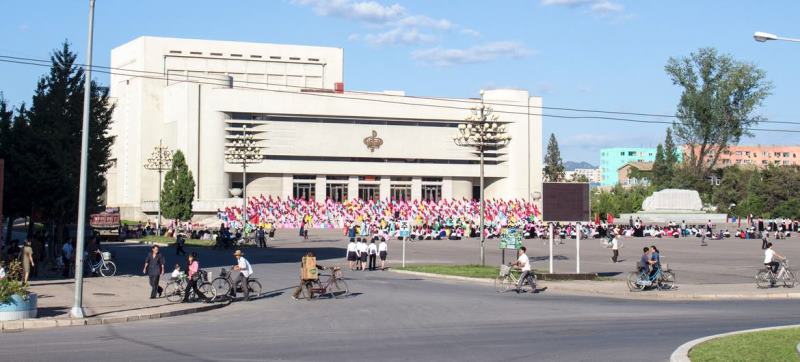 DPRK
DPRK New York: In the Democratic People’s Republic of Korea (DPRK), more commonly known as North Korea, human rights violations remain systematic, and the authorities’ grip on the population has “tightened”, the Human Rights Council heard on Monday.
The forum’s UN-appointed independent expert Tomas Quintana, reported that the situation had worsened as a result of COVID-19 prevention measures, exacerbating a suspected humanitarian crisis.
More than 10 million people – more than 40 per cent of the country - are also food insecure and fewer that three in 10 infants receive a minimum acceptable diet, said Mr. Quintana.
“Draconian measures have further strengthened the State’s control over the population, such as the policy of shooting individuals who attempt to enter or leave the country” without permission, said the expert, in reference to buffer zones set up on the border with China and Russia.
Punishment culture
Mr. Quintana, whose official title is Special Rapporteur on the situation of human rights in the DPRK, told the Geneva forum that new legislation introduced in December 2020 in an attempt to keep the coronavirus at bay, had allowed for “grossly disproportionate punishments - including the death penalty - for accessing forbidden information, particularly of foreign content”.
The alert follows concerns already raised by the Special Rapporteur about the country’s “coercive system of governance” that deprived people of their fundamental freedoms.
“This situation has not improved during the time of my mandate,” he said. “On the contrary, control over the population has further tightened, particularly since the beginning of 2020 in the context of COVID-19 prevention measures. The prolonged border closures and restrictions on movement in-country have decimated the market activity that has become essential for the general population to access basic necessities.”
Although present at the Human Rights Council, North Korea’s representative declined to respond to the allegations.
Freedoms sacrificed
Listing some of the abuses faced by the country’s people, Mr. Quitana highlighted arbitrary arrest and detention, torture and ill-treatment, restrictions on freedom of expression, religion and thought, access to information, freedom of movement and forced labour.
Camps for political prisoners – known as kwanliso – “represent the worst excesses” of the DPRK’s control of the population, who fear arbitrary detention and mistreatment in far-flung locations, the rights expert continued.
Noting that in 2021 President Kim Jong UN had acknowledged that the country faced some of its worst-ever difficulties, Mr. Quintana explained that there had been no reform of the public distribution system to provide adequate and nutritious food for the most vulnerable populations.
The solution was greater interaction with the international community, not less, the Special Rapporteur insisted.
“A much-needed gradual reopening of borders that would enable the resumption of trade with China will entail better conditions for ordinary North Koreans and their livelihoods,” he said. “Instead of limiting private coping mechanisms, the Government should support and encourage these economic and social developments.”
Support Our Journalism
We cannot do without you.. your contribution supports unbiased journalism
IBNS is not driven by any ism- not wokeism, not racism, not skewed secularism, not hyper right-wing or left liberal ideals, nor by any hardline religious beliefs or hyper nationalism. We want to serve you good old objective news, as they are. We do not judge or preach. We let people decide for themselves. We only try to present factual and well-sourced news.







